‘New chapter’ for Tehran, says Rouhani as world lifts sanctions on Iran
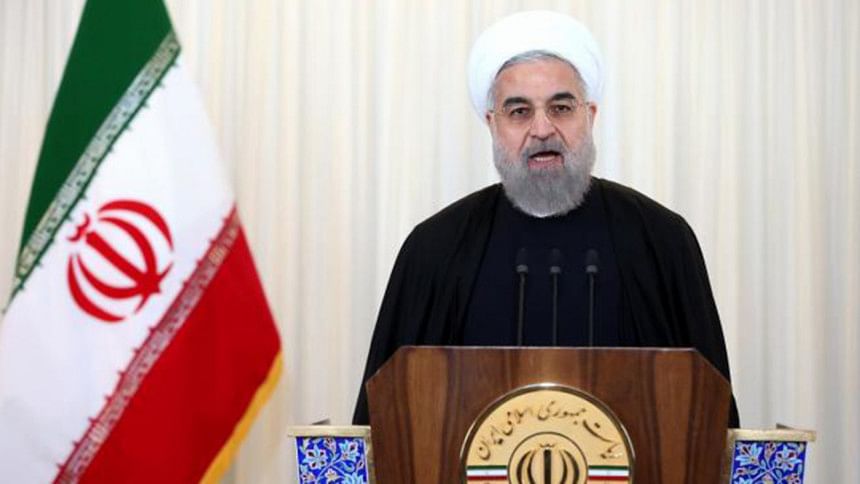
Iran "has opened a new chapter" in its ties with the world, President Hassan Rouhani has said, hours after economic sanctions on Tehran were lifted.
On Saturday the international nuclear watchdog, the IAEA, confirmed Iran had complied with a deal designed to prevent it developing nuclear weapons.
Rouhani, quoted by Press TV, said the deal did not harm any nation.
Most Western governments hailed the move, but Israel's PM insists Tehran still wants to build a nuclear bomb.
"Without an appropriate reaction to every violation, Iran will realise it can continue to develop nuclear weapons, destabilise the region and spread terror," Benjamin Netanyahu said.
In a statement to the nation on Sunday morning, Rouhani said: "We Iranians have reached out to the world in a sign of friendliness, and leaving behind the enmities, suspicions and plots, have opened a new chapter in the relations of Iran with the world."
The lifting of sanctions was "a turning point" for Iran's economy, he said, adding that the country needed to be less reliant on oil revenues.
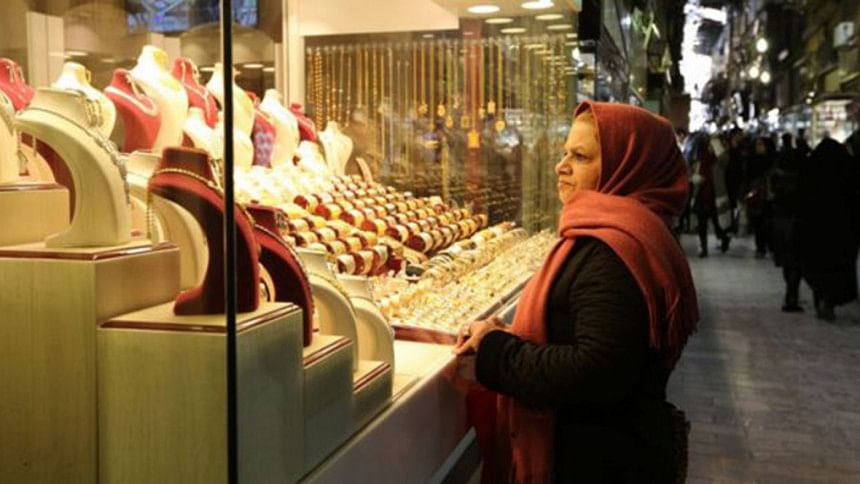
The EU foreign policy chief, Federica Mogherini, said Iran's compliance and the lifting of sanctions would contribute to improved regional and international peace and security.
Yukiya Amano, the head of the IAEA, will visit Tehran on Sunday for talks on how to continue monitoring Iran's nuclear programme.
"A lot of work has gone into getting us here, and implementation of this agreement will require a similar effort," he said.
As part of the deal, Iran had to drastically reduce its number of centrifuges and dismantle a heavy-water reactor near the town of Arak, both of which could be used in creating nuclear weapons. The reactor was then filled with concrete.
PLANES AND OIL TRADE COMING?
Estimates say close to $100bn (£70bn) of Iranian assets will be unlocked under the deal.
Hours before the sanctions were lifted, Iran's transport minister was quoted by the official Irna news agency on Saturday as saying a deal had been struck with the Airbus consortium in Europe to buy 114 new passenger planes.
And in November, Iran said it expected to immediately double its daily export of 1.1m barrels of crude oil as soon as the sanctions were lifted.
Iran has always maintained its nuclear programme is peaceful, but opponents of the deal - such as some US Republicans - say it does not do enough to ensure the country cannot develop a nuclear bomb.
On Saturday, the IAEA, said its inspectors had verified that Tehran had taken the required steps.
As a result, the US Secretary of State John Kerry ordered that US nuclear-related economic sanctions against Iran be lifted.
Speaking in Vienna where he had been holding talks with his Iranian counterpart, Kerry said Iran had "undertaken significant steps" which many people "doubted would ever come to pass".
The IAEA said it had installed a device at the Natanz plant to monitor Iran's uranium enrichment activities in real time, in order to verify that uranium enrichment levels were kept at up to 3.67% as agreed in the deal with world powers.
THE RESPONSE
"I thank God for this blessing and bow to the greatness of the patient nation of Iran" - Iranian President Hassan Rouhani on Twitter.
"Today, as a result of the actions taken since last July, the United States, our friends and allies in the Middle East, in the entire world are safer because the threat of a nuclear weapon has been reduced" - US Secretary of State John Kerry.
"Even after signing the nuclear deal, Iran has not relinquished its ambition to obtain nuclear weapons, and continues to act to destabilise the Middle East and spread terror throughout the world while violating its international commitments" - Israeli Prime Minister Benjamin Netanyahu.
"Today, the Obama administration will begin lifting economic sanctions on the world's leading state sponsor of terrorism" - US Republican House Speaker Paul Ryan in a statement.
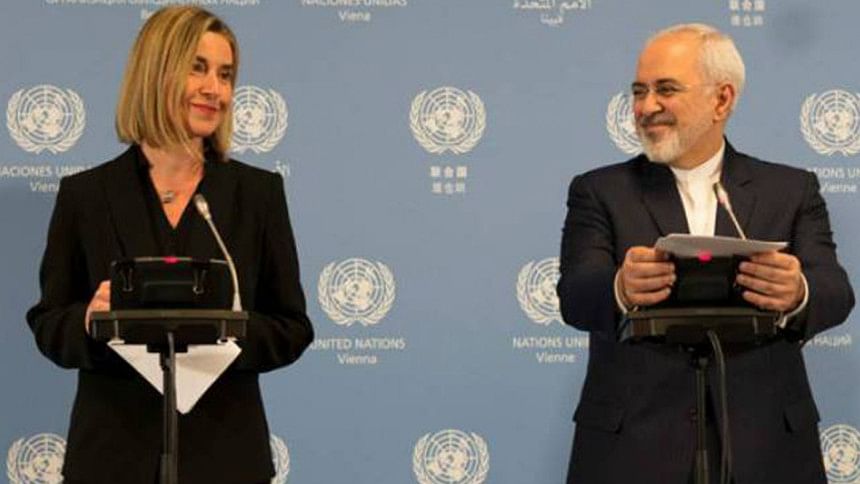
"Years of patient and persistent diplomacy, and difficult technical work, have borne fruit as we now implement the deal" - British Foreign Secretary Philip Hammond.
Earlier on Saturday it emerged that Iran had released Washington Post reporter Jason Rezaian and three other Iranian-American prisoners in an apparent prisoner swap with the United States.
Rezaian, 39, was jailed on charges, including espionage, last November.
The US said it was offering clemency to seven Iranians being held in the US for sanctions violation.
Kerry said he was "very happy to say that as we speak five Americans have been released from custody and they should be on their way home to their families shortly".
A fifth American, Matthew Trevithick, was also released on Saturday.
President Barack Obama would give more details of the releases later, Kerry said.
WHAT IS THE NUCLEAR DEAL?
In July 2015, Iran agreed a landmark nuclear deal with six world powers to limit its sensitive nuclear activities for more than a decade in return for the lifting of crippling sanctions. The US is confident the agreement will prevent Iran from obtaining a nuclear weapon. Iran says it has the right to nuclear energy - and stresses that its nuclear programme is for peaceful purposes only.
WHAT DOES IRAN STAND TO GAIN?
The sanctions have cost Iran more than more than $160bn (£102bn) in oil revenue since 2012 alone. Once they are lifted, the country will be able to resume selling oil on international markets and using the global financial system for trade. Iran has the fourth largest oil reserves in the world and the energy industry is braced for lower prices. Iran will also be able to access more than $100bn in assets frozen overseas.

 For all latest news, follow The Daily Star's Google News channel.
For all latest news, follow The Daily Star's Google News channel. 

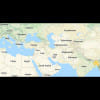
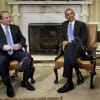




Comments